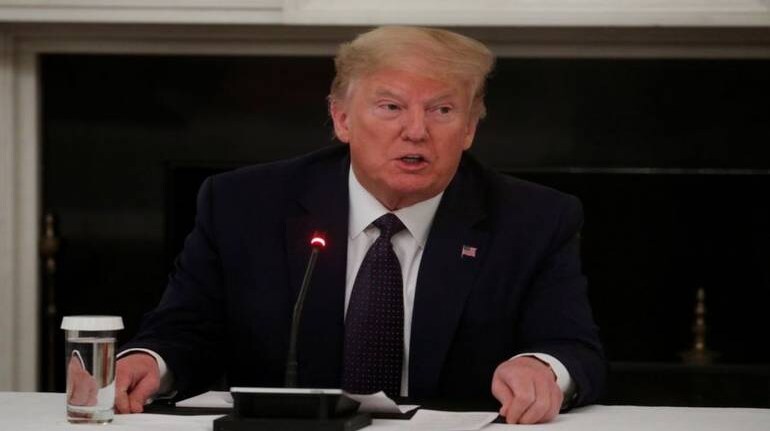Critics claim the move is a distraction from the economic impact of COVID-19 and the on-going Black Lives Matter protests
US President Donald Trump has extended the H-1B visa ban till December, blocking the entry of foreign workers into the country.
The move has been opposed by businesses, especially in sectors such as IT and software, which are heavily dependent on foreign workers, the United States Chamber of Commerce and many US Congresspersons as well.
Critics of the measure say Trump is using the pandemic to enact his long-standing goal to limit immigration into the US, especially since the re-election is scheduled in November. They also claim the move is a distraction from the economic impact of COVID-19, and the on-going social and political upheaval due to police brutality in response to the Black Lives Matter protests.
So, with the ban in place, here is all you need to know:
> The ban was already implemented earlier in 2020. It has now been extended till December and expanded to include non-immigrant work visas as well.
> The Trump Administration claims the move will "protect US workers" especially when the coronavirus pandemic has negatively affected the American economy.
> The updated ban blocks the entry of foreign workers coming into the country with H-1B, L-1 visas, H-2B visas - the last with certain exceptions.
> H-1B visas are for skilled workers, L-1 visas are for workers being transferred within companies to other country offices, and H-2B are for 'seasonal workers'.
> The suspension will apply to those who are outside the US on the effective date of the proclamation, those who do not have a valid non-immigrant visa on effective date and those without official travel document other than a visa (such as a transportation letter, an appropriate boarding foil, or an advance parole document) that is valid on the effective date of this proclamation or issued on any date thereafter that permits them to travel to the United States and seek entry or admission.
> The suspension will not apply to permanent residents of the US, foreigners with a spouse or child, as defined in section 101(b)(1) of the INA (8 U.S.C. 1101(b)(1)), of a United States citizen, those entering for work in the food industry, those whose entry would be in the national interest as determined by the Secretary of State, the Secretary of Homeland Security, or their respective designees.
> Exemptions are for those seeking asylum, refugee status, withholding of removal, or protection under the Convention Against Torture and Other Cruel, Inhuman or Degrading Treatment or Punishment, consistent with the laws of the United States.
> The immediate impact is likely to be minimal as most Consulate work has already been paused due to the COVID-19 situation.
Click here for our entire coverage of the H-1B visa banWEBINAR: Tune in to find out how term insurance can provide risk protection during tough times. Register Now!
















